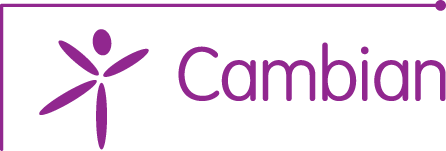What is Speech and Language Therapy?
Speech and Language Therapy helps manage disorders and difficulties of speech, language, communication and swallowing, and the results can be life changing.
Speech and Language Therapy is an integral service we offer to support the young people in our care, to provide a meaningful way of communicating their needs.
Speech and Language Disorders
Speech and Language disorders occur when a person is impaired in their ability to form correct speech sounds resulting in challenges in communicating successfully. Symptoms vary but can include repeating or prolonging sounds, distorting sounds, adding sounds to words and challenges with pronunciation to name a few.
How do Speech and Language Disorders impact children?
Speech, language and communication disorders can have a big impact on a child or young person's learning and achievement at School and/or College. Sometimes it can affect social interaction skills and the ability to make new friends.
Children with speech, language and communication difficulties often learn and understand better through visual or practical methods rather than verbal methods. For example, they may understand a story better if they watch it being acted out or drawn on paper rather than being told verbally.
How does Speech and Language Therapy support our students?
A structured support programme of Speech and Language Therapy enables our students to learn how to articulate and communicate their needs more effectively, and offers a number of benefits including:
- Increased self-esteem and confidence.
- Increased independence.
- Improved ability to comprehend and express ideas, thoughts and feelings.
- Enhanced vocal quality.
- Early language skills.
- Better swallowing function.
- Improved quality of life.
Our therapeutic support is embedded throughout the work we do with children and young people, to enable them to overcome their speech and language challenges and reach their full potential.
Our Clinical Services Teams enable the children to access support, necessary assessments, and tailored programmes which are then integrated into their daily activities. Our Speech and Language Therapists and continuously work with our students to establish and develop their trust.
What is a Speech and Language Therapist?
This title is used for Professionals who are trained to evaluate and treat communication and swallowing disorders.
Speech and Language Therapy – associated terms
There are many important medical terms that are associated with Speech and Language Therapy. These include Dyspraxia, Dysarthia, and Dysphagia. These terms are explained below.
Dyspraxia and Dysarthia
The goals of Speech and Language Therapy include improving pronunciation, strengthening the muscles used in speech, and learning to speak clearly and correctly. This is often referred to as Dyspraxia (DCD) or Dysarthia, which is primarily a motor skills disorder whereby symptoms can include struggling to produce clear, fluent speech or to say particular words or phrases due to a lack of co-ordination in the muscles of the mouth, voice and lungs.
Dysphagia
Dysphagia refers to impaired swallowing, this can be common after a stroke but can also occurs from other neurological conditions or physical damage to the mouth, throat or oesophagus. Speech and language Therapists are experts in teaching strategies to support students with swallowing difficulties.
Our Speech and Language Therapists
Our trained Speech and Language Therapists support our students through a personalised, supportive learning experience, helping to improve their communication skills on their journey with us.
Our therapists are trained through personalised and professionally structured learning pathways to ensure they are equipped to deliver the highest level of therapy for our students.
